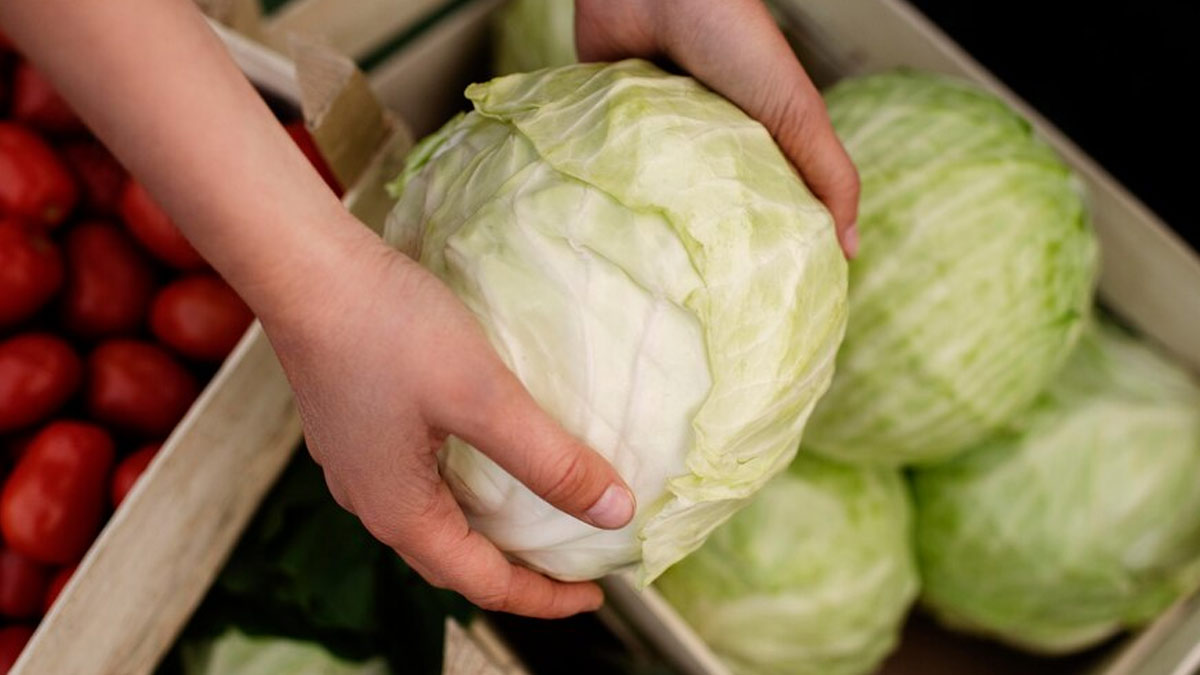
Cabbage, a versatile and affordable vegetable, is a staple in many cultures. Packed with vitamins, fibre, and beneficial antioxidants, it's a cruciferous champion lauded for its potential health benefits. But before you start prepping a mountain of coleslaw, let's explore the potential downsides of overindulging in cabbages.
Table of Content:-
Digestive Distress
Cabbage is high in fibre, and fantastic for promoting gut health and regularity. However, too much cabbage can lead to bloating, gas, and even diarrhoea. According to a study published in Nutritional Composition and Antioxidant Properties of Fruits and Vegetables, this is because the high fibre content can overwhelm your digestive system, especially if you're not accustomed to a high-fibre diet. People with irritable bowel syndrome (IBS) or sensitive stomachs may be particularly susceptible to these discomforts.

Blood Sugar Swings
A study published in the Frontiers in Pharmacology underscored that cabbage contains compounds called glucosinolates, which can break down into blood sugar-regulating substances. While this might be beneficial for those managing diabetes, for others, it could lead to dips in blood sugar levels, causing symptoms like dizziness, lightheadedness, and fatigue. If you're diabetic or taking blood sugar medications, consult your doctor about incorporating cabbage into your diet.
Interference with Thyroid Function
Cruciferous vegetables, including cabbage, contain goitrogens, which can interfere with thyroid function. This is especially concerning for individuals with hypothyroidism (underactive thyroid). As per Veterinary Medicine, goitrogens can hinder the body's ability to use iodine, essential for thyroid hormone production. While the goitrogenic effect of cabbage is considered mild, moderation is key, particularly for those with pre-existing thyroid issues.
Nutrient Blockage
Cabbage, like other cruciferous vegetables, contains certain compounds that can bind to essential minerals like iron and calcium in the digestive tract, hindering their absorption. While the impact is likely minimal for most healthy individuals, those with deficiencies or at risk of deficiencies (eg vegetarians and vegans) should be mindful and ensure a balanced diet with good sources of these minerals.
Also Read: Here's Why You Should Never Eat Raw Cabbage

Medication Interactions
Cabbage's blood sugar-lowering potential can interact with medications used to manage diabetes. If you take such medications, speak to your doctor about including cabbage in your diet and monitor your blood sugar levels closely.
Enjoying Cabbage In Moderation
While cabbage offers a wealth of nutrients, relying solely on it limits your dietary intake of other essential vitamins, minerals, and antioxidants. Aim for a diverse diet incorporating a variety of colourful vegetables and fruits to ensure you're getting a well-rounded spectrum of nutrients.
The key takeaway? Cabbage is a healthy and delicious vegetable, but moderation is crucial.
Here are some tips:
- Portion control: Aim for a reasonable serving size, like a single cup cooked or two cups raw.
- Combine with other vegetables: Create a colourful plate with a variety of vegetables to ensure a balanced intake of nutrients.
- Cooking methods: Experiment with different cooking methods like steaming, roasting, or stir-frying to enhance flavour and potentially improve digestibility.
- Listen to your body: Pay attention to how you feel after consuming cabbage. If you experience digestive discomfort, reduce your intake.
Also Read: Pros And Cons Of Consuming Cabbage: Explore Its Benefits And Demerits
By being mindful of portion sizes and potential interactions, you can continue to enjoy the benefits of cabbage without experiencing any downsides. Remember, a balanced and varied diet is the cornerstone of good health!
Also watch this video
How we keep this article up to date:
We work with experts and keep a close eye on the latest in health and wellness. Whenever there is a new research or helpful information, we update our articles with accurate and useful advice.
Current Version